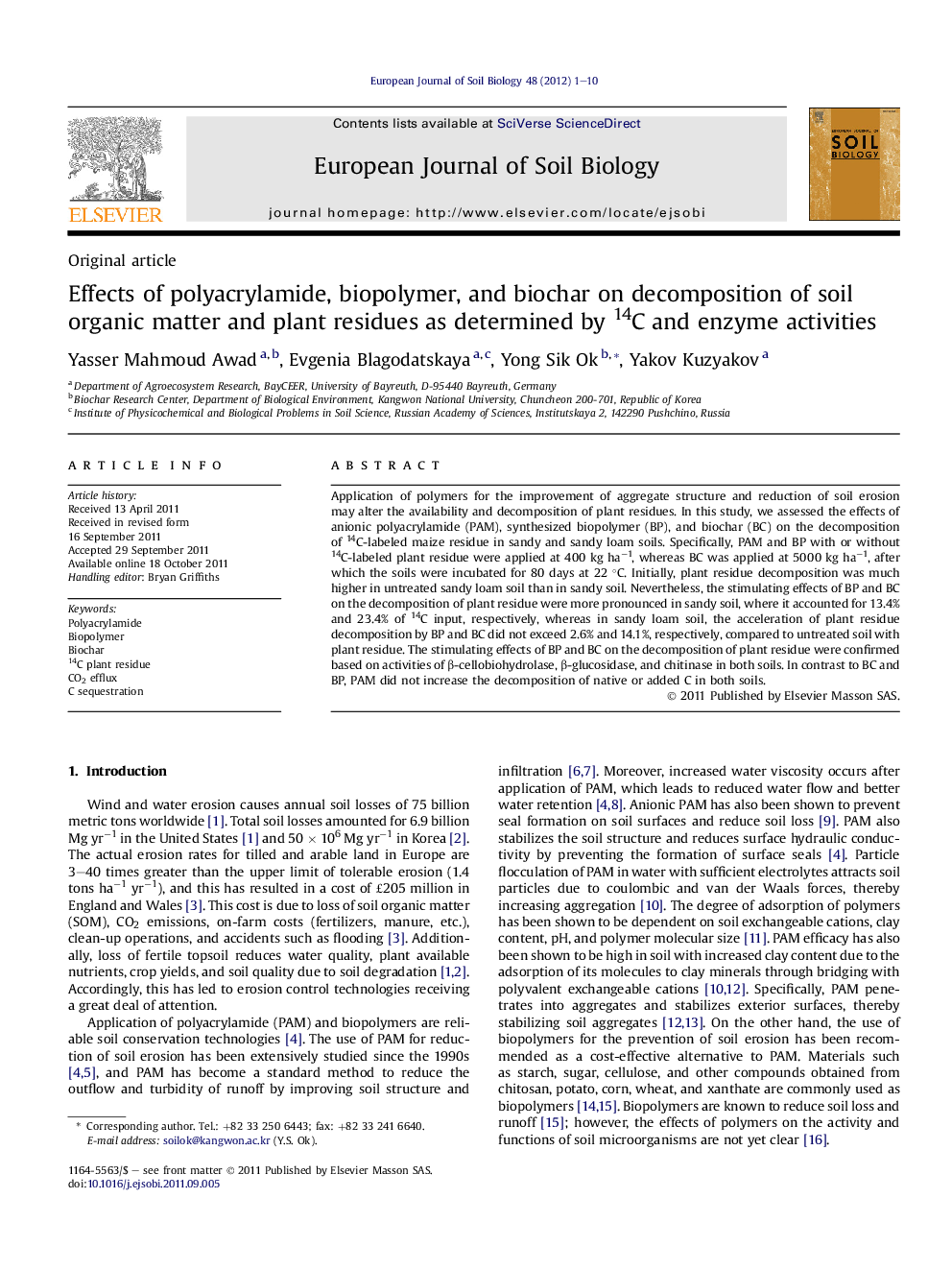| Article ID | Journal | Published Year | Pages | File Type |
|---|---|---|---|---|
| 4392093 | European Journal of Soil Biology | 2012 | 10 Pages |
Application of polymers for the improvement of aggregate structure and reduction of soil erosion may alter the availability and decomposition of plant residues. In this study, we assessed the effects of anionic polyacrylamide (PAM), synthesized biopolymer (BP), and biochar (BC) on the decomposition of 14C-labeled maize residue in sandy and sandy loam soils. Specifically, PAM and BP with or without 14C-labeled plant residue were applied at 400 kg ha−1, whereas BC was applied at 5000 kg ha−1, after which the soils were incubated for 80 days at 22 °C. Initially, plant residue decomposition was much higher in untreated sandy loam soil than in sandy soil. Nevertheless, the stimulating effects of BP and BC on the decomposition of plant residue were more pronounced in sandy soil, where it accounted for 13.4% and 23.4% of 14C input, respectively, whereas in sandy loam soil, the acceleration of plant residue decomposition by BP and BC did not exceed 2.6% and 14.1%, respectively, compared to untreated soil with plant residue. The stimulating effects of BP and BC on the decomposition of plant residue were confirmed based on activities of β-cellobiohydrolase, β-glucosidase, and chitinase in both soils. In contrast to BC and BP, PAM did not increase the decomposition of native or added C in both soils.
► Polyacrylamide, biopolymer, and biochar were assessed as soil stabilizers. ► Their effects on the decomposition of 14C-labeled maize residue were evaluated. ► Biochar accelerated decomposition of plant residue compared to other stabilizers.
